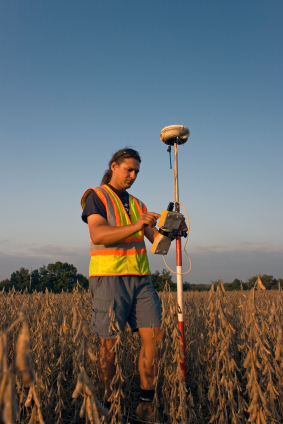Booking and Cost
The fee for the course per delegate is £234 inclusive VAT (£195 excluding VAT) and includes:
- Lunch;
- Refreshments throughout the day;
- Course workbook;
- Course completion certificate; and
- Technical support shortly after the course for any queries relating to material covered.
Please download a Booking Form (docx, 210 K), complete and return together with your payment to secure your place. You can also download the Practical Open Source GIS Course Outline (pdf, 389 K)
Early booking is advised as numbers on all the courses are limited to a maximum of six to eight delegates to allow an appropriate level of tuition. If there are more than six to eight delegates, a second course may be run, dependant on numbers.
Please Email or call Tim Smith directly on T: 01453 759306 M: 07732 397984 if you have any queries.
‘We attended the Practical Open Source GIS course in December 2015. The course content met my expectations and was delivered in a clear, concise and measured manner. The practical session followed a format that was logical, and enabled a thorough understanding of QGIS in a surprisingly short space of time. Tim’s supporting material has allowed us to go away and start using QGIS immediately. I thoroughly recommend the Practical Open Source GIS course to all, regardless of your GIS experience’.
David Long, Ecologist and Director, Barratt Environmental Ltd
Course Outline
The course has been designed for participants to develop their skills using the Open Source Geographic Information System (GIS) software package Quantum GIS (QGIS) as a more cost-effective alternative to using commercially available GIS packages such as ArcGIS and MapInfo.
The courses are being run at a large number of locations around the UK in order to make it as easy as possible to access and benefit from the training regardless of where you are based.
‘Tim was excellent at guiding me through the QGIS software and went the extra mile when asked for help on the software’s capabilities beyond the scope of the course content’.
Emily Dickins ACIEEM – Bernwood ECS Ltd
The particular GIS skills you will learn have been carefully selected by the Tutor, a working ecologist for over eleven years, so that you will be able use QGIS independently after completing the course to carry out the most useful and common GIS tasks. More advanced techniques and unnecessary detail will be avoided and emphasis will be placed on foundation skills which are often overlooked but are fundamental to the ability to be able to successfully use QGIS independently.
The course focuses on developing hands-on practical GIS skills through individual computer-based practical sessions. An overview of the skills you will be using and developing in each computer-based practical session will be given beforehand through demonstration by the tutor. You will then consolidate these skills by undertaking the subsequent computer practical session whilst being carefully assisted step-by-step by the tutor. The carefully structured practical sessions will be further aided by the course workbook written by the Tutor specifically for the course. The course workbook sets out each exercise clearly step-by-step graphically and in accompanying text descriptions. The course workbook will form a valuable source of reference following completion of the training.
‘I recently took the Practical Open Source GIS course and I have come away from it with a much better understanding of GIS and the ability to create a finished map product to be used in a report. Excellent course, well paced and well run’.
Terry Bates, ISA Certified Arborist UI-1278A
Tutor: Tim Smith BSc (Hons.) MCIEEM
 Tim has used QGIS, ArcView, ArcGIS and MapInfo throughout his career for research, conservation and ecological consultancy. His higher level GIS expertise has been used for tasks such as rationalising GIS datasets for English Nature and creating a GIS inventory of wetlands across Wales for Countryside Council for Wales. Tim has also undertaken soil and topographic surveys on a number on internationally important wetlands across the UK using a Trimble R8 Virtual Reference Station (VRS) and produced terrain maps and models in ArcGIS using these field data.
Tim has used QGIS, ArcView, ArcGIS and MapInfo throughout his career for research, conservation and ecological consultancy. His higher level GIS expertise has been used for tasks such as rationalising GIS datasets for English Nature and creating a GIS inventory of wetlands across Wales for Countryside Council for Wales. Tim has also undertaken soil and topographic surveys on a number on internationally important wetlands across the UK using a Trimble R8 Virtual Reference Station (VRS) and produced terrain maps and models in ArcGIS using these field data.
Tim now mainly uses GIS for habitat mapping and analyses of Phase l and Phase ll survey data using overlays of development plans in GIS to enable more effective identification of ecological constraints and mitigation design. He is keen to inspire and promote the use of GIS more widely, particularly in ecological consultancy.
You can find further information on Tim’s background here
‘I have been on many work related courses in my time with varying degrees of success and enjoyment. However, the Practical Open Source GIS course was by far the best training course I’ve ever been on.Firstly, before we started, training objectives for each topic were identified. The content was organised and easy to follow and Tim was a fantastic teacher with lots of knowledge on many types of GIS software, but more importantly for me was that he had lots of patience and didn’t mind going over things time and again.
Since the training I have been able to apply the knowledge learned to good effect, especially with the training materials distributed, which were not only pertinent and useful at the time but I have used them nearly every day since.
The training more than met my expectations and I would not hesitate to recommend Tim and his courses to anyone’.
Jonathan Still, FdSc Forestry Management
Course Requirements
This course has been designed for participants with little or no previous experience of GIS. To participate in the course you will require a reasonable level of IT literacy and a moderately well powered laptop (with WiFi) running Windows operating system and pre-loaded with QGIS 2.8 Long Term Release (for corporate users) which can be downloaded from here
Aims and Objectives
• To enable participants to develop practical skills in QGIS for more robust ecological decision-making and best practice purposes;
• To explain the importance of the application of GIS in ecological decision-making;
• To enable participants to become familiar with the main functionality of QGIS;
• To teach participants simple techniques to enable them to build, manage and analyse ecological datasets; and
• To teach participants how to produce map layouts for inclusion in reports.
‘Having recently attended a Five Valleys Ecology Practical Open Source GIS course I would highly recommend it to other students. The course was delivered clearly by an extremely knowledgeable trainer and met all my expectations. GIS courses can often be technically overwhelming and the trainer’s explanation of its functions were clear and easy to follow. The handout which was comprehensive but concise clearly set out the training objectives of the course, all of which were met by the trainer.Having attended the course I feel confident now to produce Phase l Habitat maps using GIS software and look forward to attending subsequent QGIS courses offered by Five Valleys Ecology to learn about its more advanced functions.
In addition the lunch was delicious! Thanks Tim for an excellent course – looking forward to learning more’.
Carolyn Billingsley MCIEEM, Ecological Matters
Learning Outcomes

• An understanding of the importance of ecological decision-making being based on spatially accurate ecological data through the application of GIS;
• Project setup;
• Setting geographical co-ordinates for your data frame (georeferencing);
• Adding Raster and Vector data to your Project;
• Managing Raster and Vector data;
• Creating and editing spatial data;
• Getting to know your way around QGIS;
• Looking at data at different scales;
• Symbology; and
• Techniques to produce map layouts for inclusion in reports using Print Composer.
Venues and Locations
Courses are being held at the following venues and locations near you. Each course runs from 09:30hrs to 16:30hrs.
Newcastle – 09 December 2015 at Jurys Inn, Scottswood Road, Newcastle, NE1 4AD. Please click here for further details on this venue.
Glasgow – 10 December 2015 at Jurys Inn, 80 Jamaica Street, Glasgow, G1 4QG. Please click here for more details on this venue.
London (Croydon) – 12 January 2016 at Jurys Inn, Wellesley Road, Croydon, CR0 9XY. This venue is approximately 15 minutes by (fast) train from cental London (Victoria). Please click here for more details on this venue.
‘I was surprised how much I can do now after just one day’s training. The course was nicely paced and the tutorial booklet that accompanied it is a great reference. I feel able to confidently produce Phase l maps with target notes now, having previously had no computer mapping experience. Since completing the course I have gone on to use QGIS without needing any extra help’.
Dominic Rigby, Senior Ecologist at Conservation Contracts Northwest Ltd
Exeter – 28 January 2016 at Jurys Inn, Western Way, Exeter, EX1 2DB. Please click here for further details on this venue.
Maidstone – 14 January 2016. Please Email or call Tim Smith directly on T: 01453 759306 M: 07732 397984 to enquire about booking.
Cambridge – 10 February 2016 at The Gonville Hotel, Gonville Place, Cambridge, CB1 1LY. Please click here for more details on this venue.
Oxford – 17 February 2016. Please Email or call Tim Smith directly on T: 01453 759306 M: 07732 397984 to enquire about booking.
Stroud – 01 March 2016 at The Exchange, Brick Row, Stroud, Gloucestershire GL5 1DF. Please click here for more details on this venue.
Bristol 15 March 2016 at Hilton Bristol, Woodlands Lane, Bradley Stoke, Bristol, BS32 4JF. Please click here for more details on this venue.
Birmingham – 22 March 2016 at Jurys Inn, 245 Broad Street, Birmingham, B1 2HQ. Please click here for more details on this venue.
Details on the itinerary can also be found in our advertisement in the October editions of British Wildlife and CJS Professional (or CJS Weekly).
“The Practical Open Source GIS one day course was very well run and good value for monies. The tutor Tim Smith provided a relaxed, attentive and easy to follow teaching environment which with a ratio of 3 to one was excellent for practising the exercises, and seeking help if required, with plenty of time to check and clarify understanding. Technical jargon was explained in plain English and key points highlighted.I would recommend this course for those starting at the beginning of GIS who wish to learn how to confidently produce from scratch a ‘good quality, accurate and fairly simple’ map which can be ‘built up’ if one wishes, without becoming bogged down in over-whelming technical detail. The course encouraged interest in further developing GIS skills.”
